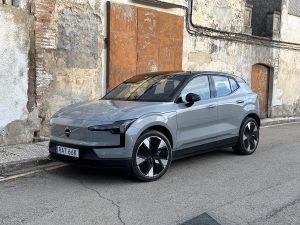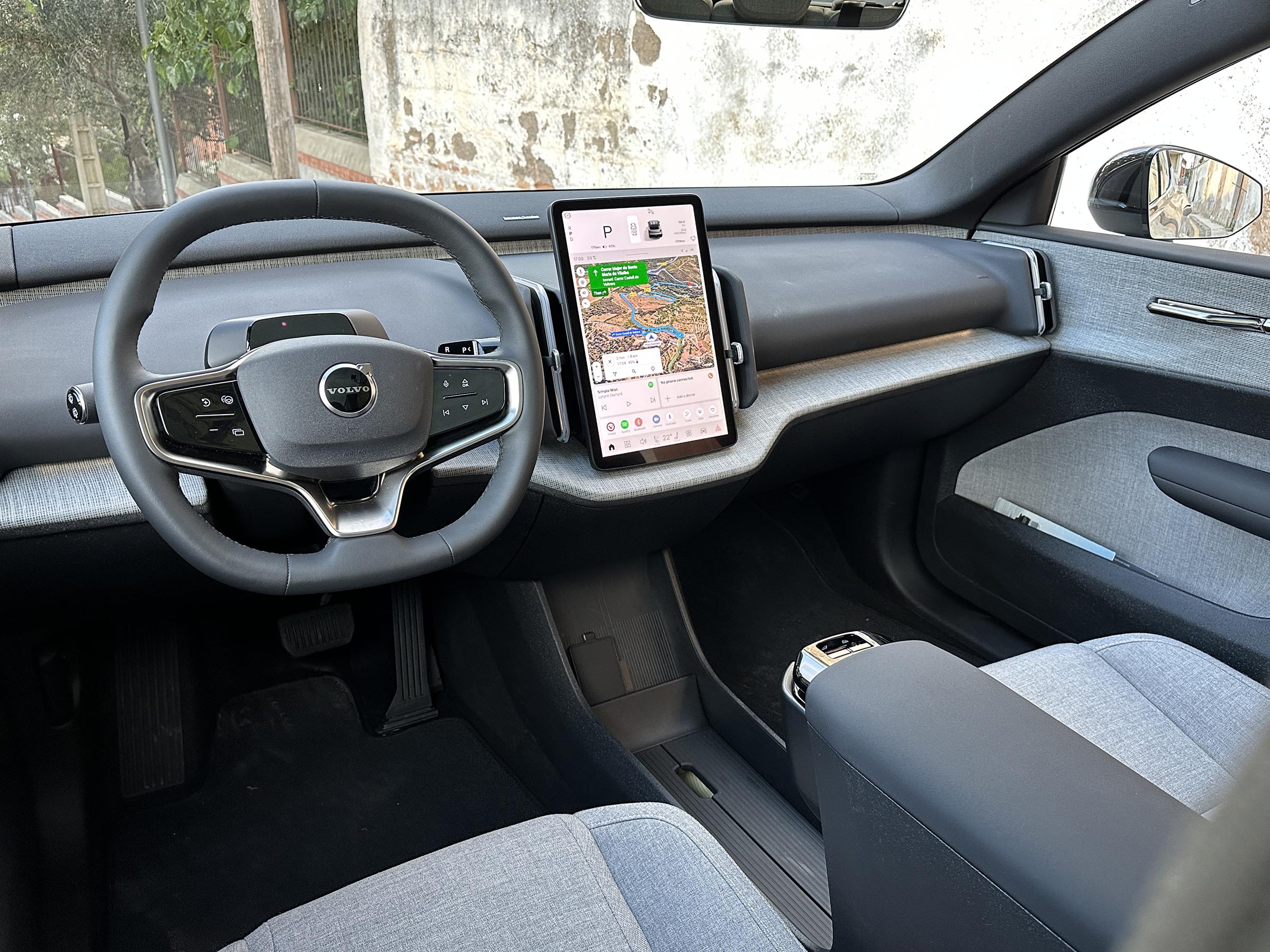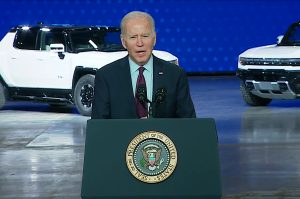Your next new car is likely to be loaded with all sorts of digital technology – and the software to run it. And that means it may know “a lot about you.” And how that information is used has raised growing privacy concerns. That’s why the U.S. Commerce Dept. may impose restrictions on the use of software coming from China.

Volvo delayed the U.S. launch of the EX30 due to new tariffs on Chinese EVs. The proposed new rules might also force it to rewrite some software.
The typical new vehicle contains tens, even hundreds of millions of lines of software code. And it’s not only used to operate the engine controller or advanced driver assistance systems. In more and more vehicles, software is being used to track how and where a vehicle is being driven and may capture very detailed personal information about drivers themselves.
In some cases, that information is being tracked by automakers and even sold to third parties, something that’s raising new privacy concerns – all the more so when that software has been written by one of the nation’s adversaries.
That’s got the U.S. Commerce Department pulling together new rules that could ban – or, at the least, limit — the use of Chinese software in future vehicles.
“Your Car Knows a lot about you”
“A car is a very scary thing. Your car knows a lot about you. Your car probably gets a software update, whether it’s an electric vehicle or an autonomous combustion engine vehicle,” said Alan Estevez, export controls chief for the U.S. Department of Commerce, during a forum in Colorado this week.
In May, several automakers, notably including General Motors, were called out for tracking information about how some of its products – such as the Chevrolet Bolt EV – were being driven and then selling that data to insurance companies that would use it to set premiums. GM has since said it stopped the practice.
But onboard software continues to track basic vehicle information, including some data similar to what airplane black boxes record. On top of that, millions of motorists are willingly storing personal information, such as credit card numbers and passwords, in their infotainment systems and on smartphone apps that interface with their vehicles.
“A modern car has a lot of software in it. It’s taking lots of pictures. It has a drive system. It’s connected to your phone. It knows who you call. It knows where you go. It knows a lot about you,” added Estevez.
Concerns about China

Currently, only a handful of Chinese-made vehicles – such as the newly updated Lincoln Nautilus – are sold in the U.S.
The U.S. relationship with China is increasingly fraught over both trade and military issues. And the Biden administration has already stepped in, earlier this year enacting strict new limits on Chinese imports ranging from medical syringes to steel.
Tariffs on battery-electric vehicles were quadrupled, to 100%, a move likely to delay the arrival into the U.S. of brands such as BYD and Geely. Currently, only a handful of Chinese-made products are sold in the States through familiar brands like Buick, Lincoln and Volvo. The Swedish marque last month said it will delay the launch of its new EX30 EV until production can be shifted from China to Belgium.
Now, the Commerce Dept. is looking at placing restrictions on the use of Chinese software. Experts cite several concerns: both the ability to surreptitiously track user data and the possibility that “back doors” could be encoded into the software that could allow Chinese hackers to take control of, or even disable, vehicles.
More Cybersecurity News
- $25 Mil Ransom Paid to End Cyberattack on US Dealers
- Cyberattack Cripples Car Dealers Across U.S.
- Welcome to the Era of Software-Defined Vehicles
What now?
Back in February, the White House initiated a probe looking at whether Chinese vehicles pose a national security threat.
Commerce Secretary Gina Raimondo underscored the administration’s concerns when, in May, she announced that new rules will announce rules later this year covering software in Chinese vehicles. Among other things, that could ban so-called connected car technologies using software from China capable of tracking owner data and potentially providing such back doors to hackers who could be state-sponsored.
“We’re looking at a few components and some software — not the whole car — but it would be some of the key driver components of the vehicle that manage the software and manage the data around that car that would have to be made in an allied country,” said Estevez.
Reuters described his comments during the forum as the “most definitive to data” when it comes to White House plans for Chinese vehicles.

Chinese authorities were themselves worried about how Tesla’s software could be used to spy on that country’s military.
China pushes back – but it’s also concerned about data tracking
The Chinese government has protested the new Biden tariffs and is taking action to reverse the new rules – as well as tariffs expected to follow in the European Union. It’s expected to challenge any limits on the use of Chinese software, as well.
Ironically, the Beijing government fully understands the threat that vehicle software poses. It has put severe restrictions on Tesla vehicles because of concerns their semi-autonomous driving systems could let its adversaries – namely the U.S. – surreptitiously monitor Chinese military installations.
After negotiations with the automaker, spearheaded by CEO Elon Musk, the Full Self-Driving system may soon be approved for use, but with strict limits on what it can track and report out of the vehicle.










0 Comments